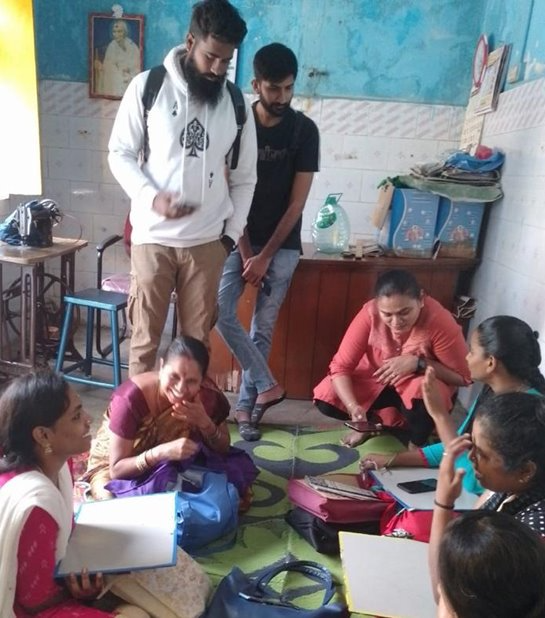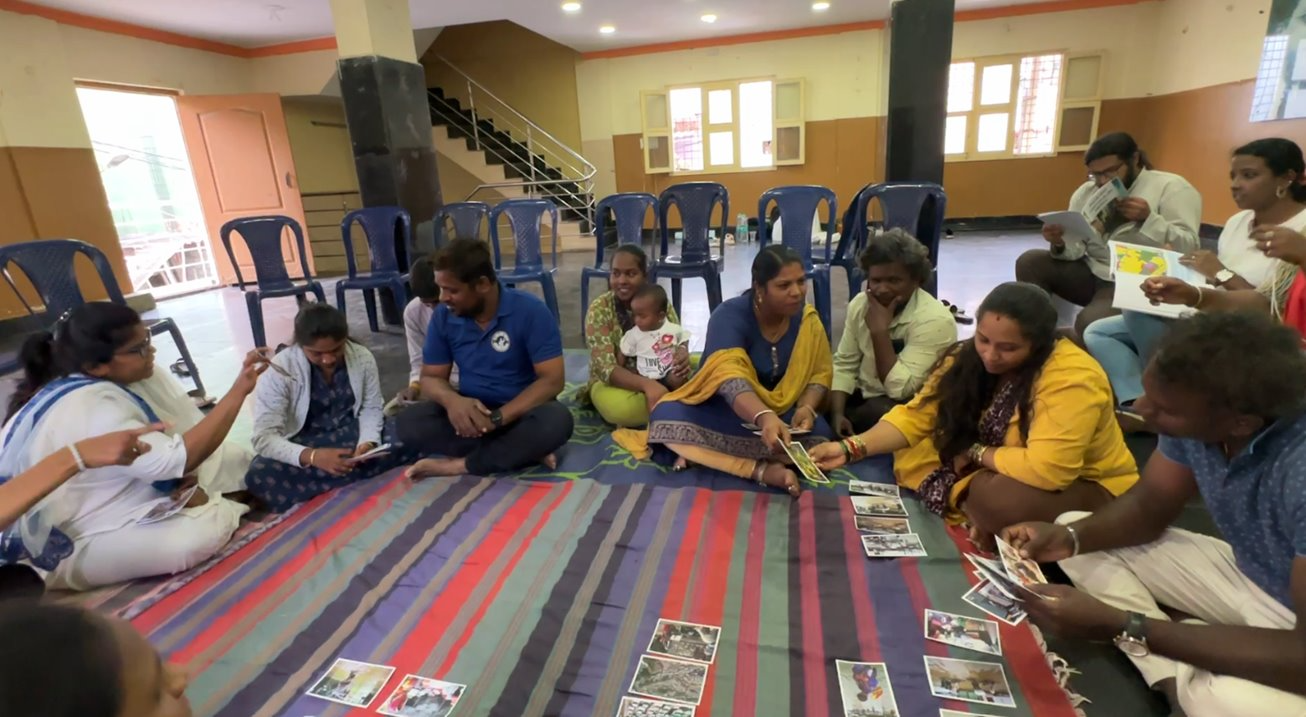Bengaluru's urban jungle is under siege. Soaring temperatures, unpredictable downpours, and choking air pollution are turning the city into a hostile environment for its residents, especially the most vulnerable. Once a symbol of India's tech boom, the city now faces a different kind of challenge: survival.
In response to this crisis, a ground-up movement is taking shape. Ellara Bengaluru, a coalition of citizens, civil society, and academia, is pioneering a ward-level approach to build a climate-resilient and inclusive city. Supported by the Mahila Housing Trust (MHT), the initiative meticulously documents data across various wards to evaluate conditions based on factors such as sanitation, water supply, and urban spacing. This detailed, micro-level data is crucial for identifying hotspots of climate impact and enabling targeted interventions.
The Ward Factsheet is a collaborative effort of Ellara Bengaluru, with contributions from five organizations—MHT, Socratus, Hasirudala, Jansahas, and Restless Development. Each organization provides valuable insights to make the Ward Factsheet more actionable and effective. The initiative works with government bodies, civic authorities, and local communities to empower residents to participate in decision-making and drive solutions, ensuring that no one is left behind.
In an interview with TheCSRUniverse, Bijal Brahmbhatt, Executive Director at Mahila Housing Trust, emphasizes the importance of the Ward Factsheet exercise. This initiative captures details across various verticals, including climate change impacts—such as heat, flooding, and air pollution—alongside essential services and living conditions within Bengaluru’s wards. Brahmbhatt highlights that the purpose of the Ward Factsheet is to amplify the voices of the urban poor amidst climate change and urbanization-induced vulnerabilities, integrating their perspectives into the city’s larger development goals through co-created advocacy tools and potential solutions.
To understand how the Ward Factsheet is transforming Bengaluru into a climate-resilient city, read the full interview below.
Q&A
Q. What motivated the development of the Ward Factsheet?
A.The concept of the Ward Factsheet emerged from the necessity to address the increasing number of climate events affecting Bengaluru. Often, the most affected populations remain excluded from planning and implementing solutions. By bringing together diverse stakeholders, Ellara Bengaluru aims to facilitate a just transition towards a more climate-resilient city.
As per the 74th Constitutional Amendment, wards committees were supposed to be formed in all municipal corporations, the rules specify that a meeting of the wards committees should be held every month, this highlighted the importance of ward-level planning. Ellara Bengaluru partners recognized the potential of collaborating with the government to derive inclusive and effective solutions, making the Ward Factsheet an actionable tool for intervention.
 Q. How does the Ward Factsheet contribute to understanding the impacts of climate change in Bengaluru?
Q. How does the Ward Factsheet contribute to understanding the impacts of climate change in Bengaluru?
A.The Ward Factsheet exercise is a crucial component in measuring the impacts of climate change within urban planning contexts, as micro-level (ward-level) data is not available in the city-level climate action plan.
By concentrating on the ward, the smallest unit of city planning, this exercise enables detailed data collection and validation at the micro level. Guided and supported by Ellara Bengaluru partners, continued engagement with the community ensures their active participation in data collection and validation, fostering a sense of ownership and accountability.
This meticulous approach helps capture the unique challenges and needs of each ward, especially those often overlooked in broader city-level assessments. Integrating climate considerations into this granular level of planning ensures that urban poor communities, who are most affected by climate change, receive the attention and resources they need. The Ward Factsheet bridges gaps in understanding and addresses the challenges faced by the ward, making it a pivotal resource for implementing city-level climate action plans.
Q. Can you outline the process of creating a Ward Factsheet and explain how the collected data will be used?
A. The process of compiling a Ward Factsheet involves several key steps:
Identifying Data Categories: We identify necessary data categories such as demographics, land use, infrastructure, waste management, blue-green spaces, and climate change parameters (heat, flooding, and air pollution).
Reviewing Existing Data: We review existing data from secondary sources and prepare survey formats to collect new data.
Collaborative Implementation: Five organizations (MHT, Socratus, Hsirudala, Jansahas, and Restless Development) are involved in implementing the Ward Factsheet activity on ground.
Team Formation and Training: We form a team from organizations and train them on data collection methods and tools.
Data Collection: The ward is divided into sections for data validation through GPS mapping, photos, primary surveys, and focus group discussions.
Data Analysis: We gather and analyse data on water, sanitation, waste, transport, social infrastructure, blue-green infrastructure, and climate factors to identify key issues and trends.
Post-compilation, the Ward Factsheet helps guide targeted interventions, to ensure effective resource allocation to address pressing issues. It also engages the community in ongoing urban planning and climate change mitigation efforts, providing crucial insights for governance and budgetary processes.
Q. What insights have emerged from the pilot Ward Factsheet in Shantinagara regarding the challenges faced by Bengaluru residents due to climate change?
 A. Developing the Shantinagara Ward Factsheet as a pilot activity has provided several key learnings:
A. Developing the Shantinagara Ward Factsheet as a pilot activity has provided several key learnings:
Understanding Community Needs: A survey conducted among 250 residents highlighted their specific needs and issues.
Importance of Continuous Data Updating: Ensuring that data remains relevant and accurate through continuous updating is essential.
Standardization with Adaptation: While the factsheet format can be standardized, it must be adapted to reflect the unique characteristics of each ward.
Community Engagement: Continued engagement with the community ensures their active participation in data collection and validation, fostering a sense of ownership and accountability.
Q. What are the next steps for the Ward Factsheet initiative, and how will the collected data be leveraged to improve the city's climate resilience?
A. Ellara Bengaluru envisions itself as a bridge between marginalized communities and government bodies. The campaign will continue to engage deeply with urban poor and informal communities, building resilience against climate stressors and raising awareness about existing policies and planning processes. We plan to:
Expand the Reach: Adopt the Ward Factsheet process and data format for other wards across Bengaluru.
Regularly Update Data: Ensure the data remains current and relevant for ongoing use by the coalition organizations.
Implement Targeted Interventions: Utilize the data to address specific issues such as flooding, heat stress, air pollution, and infrastructure disparities.
Propose Policy Changes: Use insights derived from the factsheets to propose policy changes that address the specific needs and vulnerabilities of each ward.
In summary, the Ward Factsheets will serve as a dynamic tool for ongoing urban planning and climate resilience efforts, facilitating informed decision-making and targeted actions to improve the quality of life in Bengaluru.




 Q. How does the Ward Factsheet contribute to understanding the impacts of climate change in Bengaluru?
Q. How does the Ward Factsheet contribute to understanding the impacts of climate change in Bengaluru? A. Developing the Shantinagara Ward Factsheet as a pilot activity has provided several key learnings:
A. Developing the Shantinagara Ward Factsheet as a pilot activity has provided several key learnings:














.jpg)



